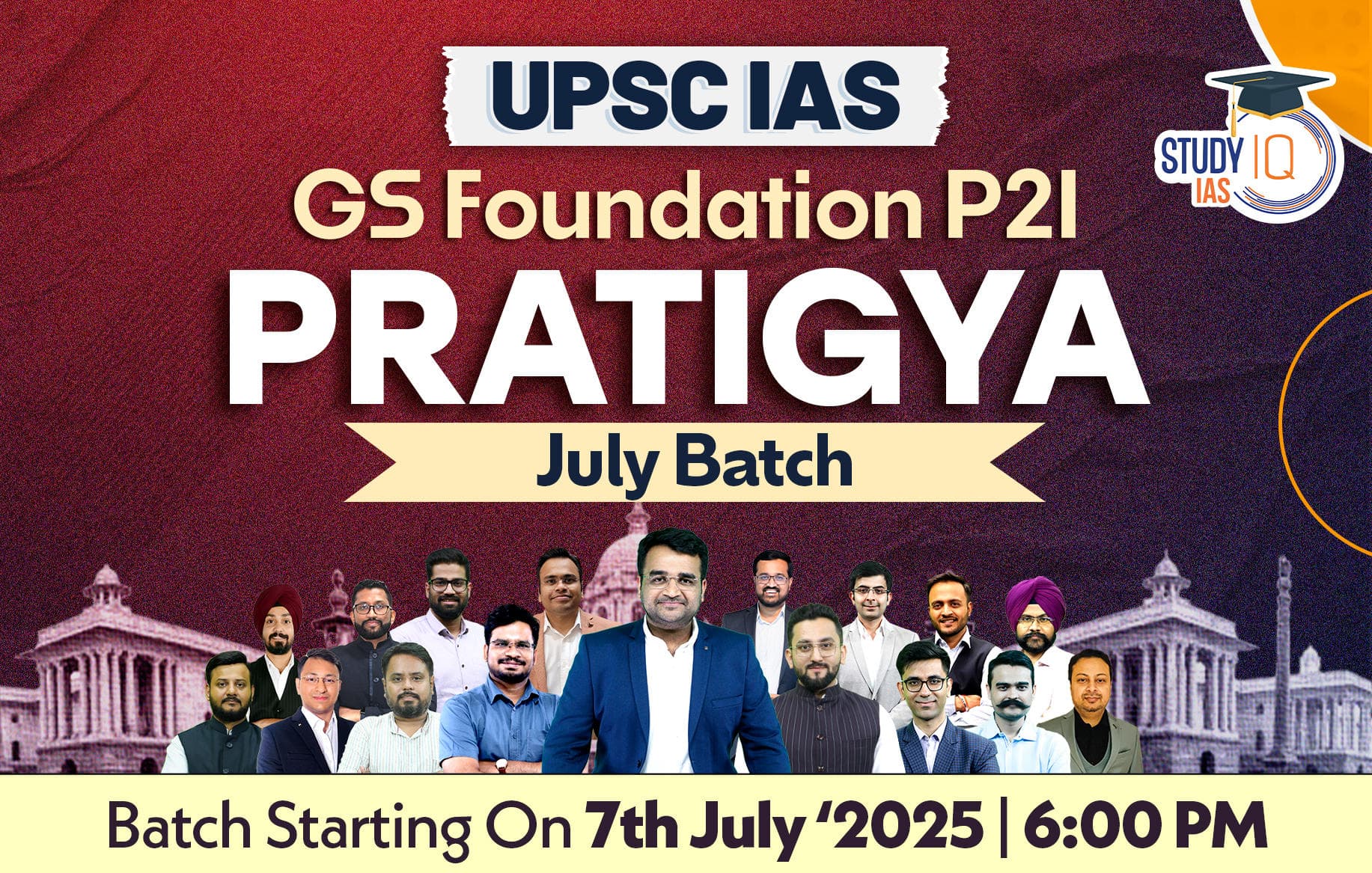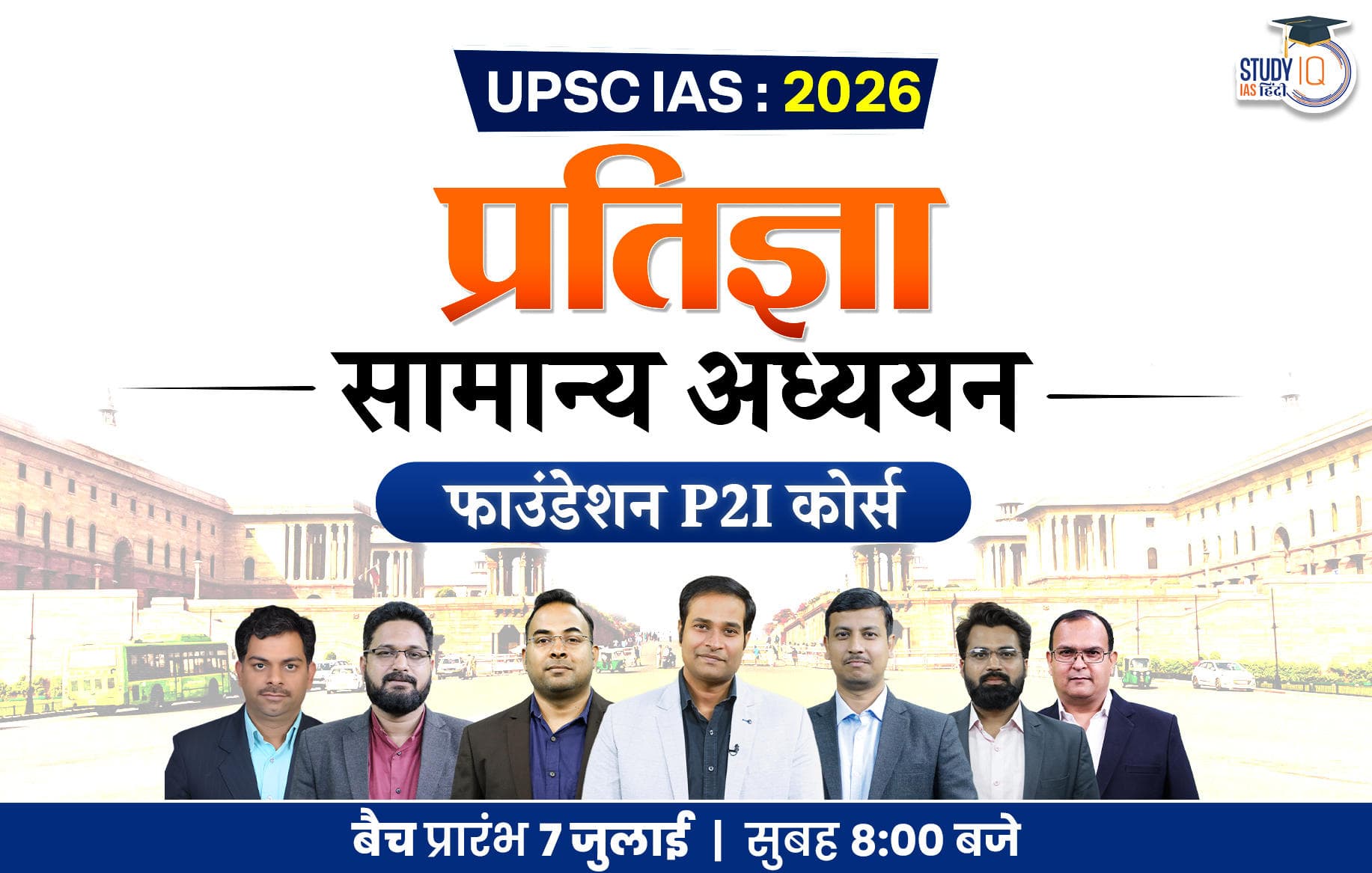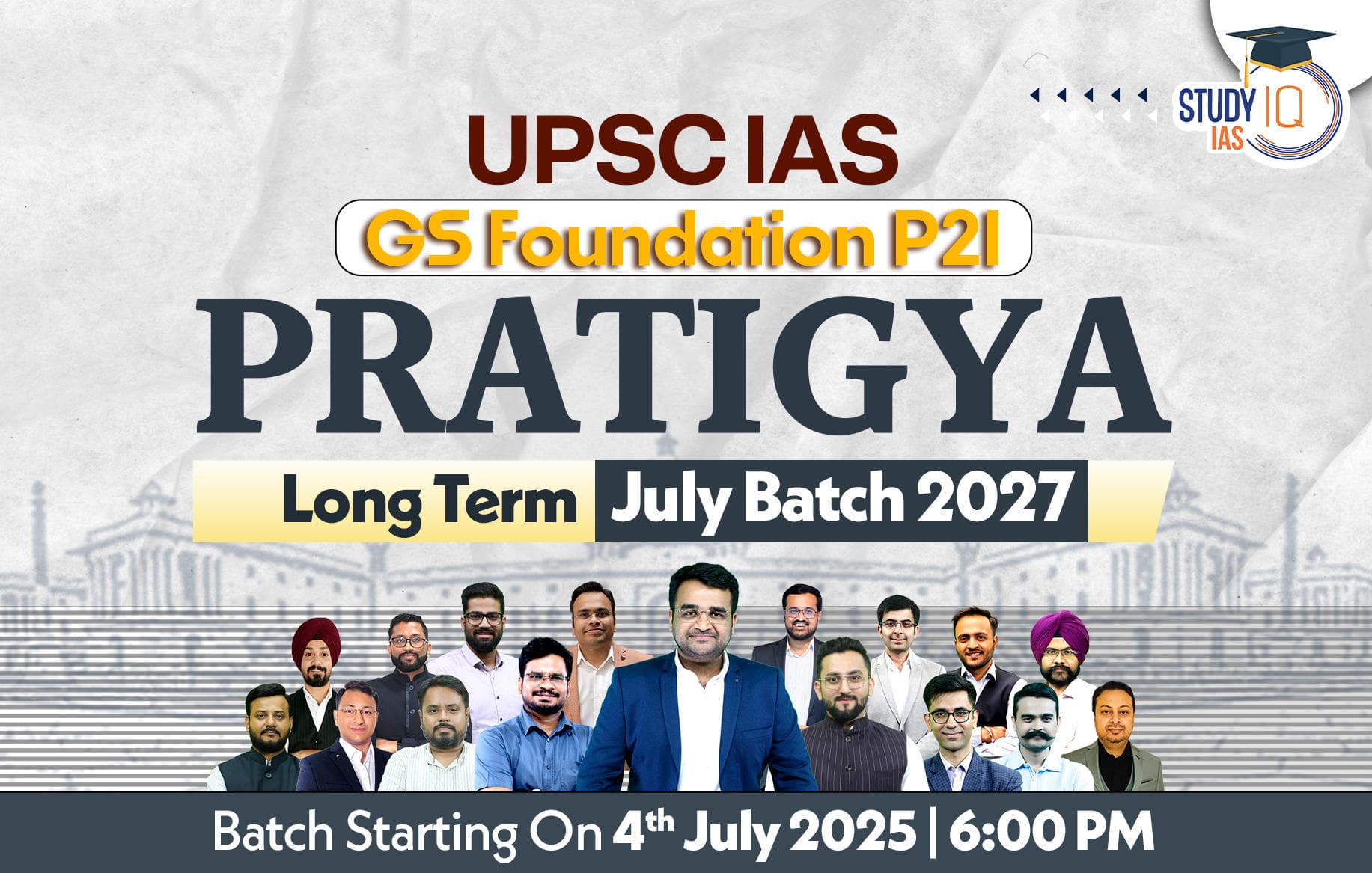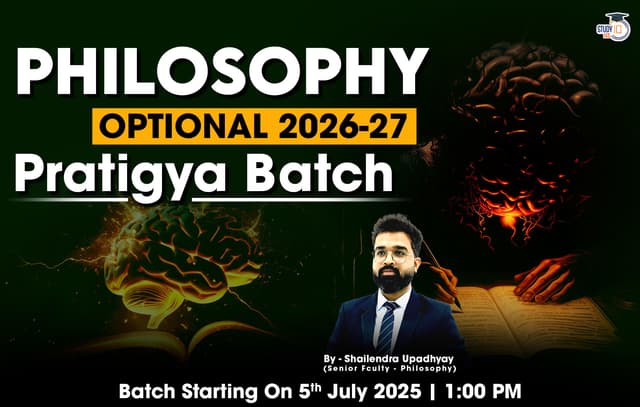Table of Contents
August Offer
The August Offer was made by Viceroy of India Lord Linlithgow made in August 1940. Since it was made in the month of August, it is known as “The August Offer.” In the August Offer, Viceroy Linlithgow pledged to create an advisory war council, increase the number of Indians in the Viceroy Executive Council, and create a representative Indian body to draught the Indian Constitution.
Both the Muslim League and the Indian National Congress rejected the August Offer of 1940. Here are further specifics about the offer, its conditions, and its importance. The subject, which is taught in the history section of the UPSC syllabus, is crucial to understanding for the IAS Exam.
August Offer Background
Lord Linlithgow made the “August Offer” in 1940 in an effort to enlist India’s assistance in the Second World War. Lord Linlithgow declared India’s involvement in the conflict during World War I without the Indian people’s approval. Indians were offended by this and opposed the British government’s involvement in World War II.
Linlithgow put up the August Offer when Indians were clamoring for independence from British domination. This occurred at a time when Britain sorely wanted India to join the war and Britain’s ally, France, had been occupied by the Nazis. Indians would have more representation in the Viceroy’s Executive Council in exchange for their participation in the war, according to the August offer.
Indians rejected Linlithgow’s August Offer because representation of Indians in the British government was long overdue and no guarantees were offered regarding full independence for India.
August Offer Proposal
As a goal for India, the British government suggested dominion status. A representative Indian body would be established after the war to draught the nation’s constitution. The Viceroy’s Council would be expanded so that more Indians than whites could participate. After the conflict, a war advisory committee would be established.
However, the British administration resisted granting full independence. All services provided by the Republic of India will continue to be managed by the British, including the defence, finances, and domestic affairs. Viceroy further stated that before any constitutional reform, the dispute between the Indian National Congress (INC) and the Muslim League will be resolved. Minorities were given the assurance that a future constitution will take their opinions into account.
August Offer and Indian Leaders Response
The Indian National Congress and the Muslim League responded poorly to Viceroy Linlithgow’s August Resolution. India’s entry into World War I had already been proclaimed by the British administration without Indian assent.
In response, the Muslim League and Indian National Congress declined to take part in a new war and rejected the August Offer. Additionally, the Congress’s demand for total independence from the British was not satisfied by the August Offer. The British government only granted India a Dominion status in accordance with the August Declaration. The Congress rejected the August Offer of 1940 because they wanted India to have complete independence, but they gave them dominion status instead.
The establishment of Pakistan as a distinct country was in the interest of the Muslim League, which likewise rejected the August Offer since it did not make that commitment. Mahatma Gandhi started the Individual Satyagraha movement in opposition to the offer.
August Offer and Individual Satyagrah
Mahatma Gandhi started the Individual Satyagraha movement in 1940 to oppose the August Offer given by Lord Linlithgow. Gandhi favored a nonviolent response to the August Offer. In place of mass Satyagraha, he started the nonviolent movement known as Individual Satyagraha. After the August Offer of 1940, Gandhi declared Individual Satyagraha.
Three Satyagrahis were the original founders of this movement, and they were all apprehended by British authorities. Acharya Vinoba Bhave was the first Individual Satyagrahi, followed by Jawahar Lal Nehru and Brahma Dutt. Numerous Satyagrahis were imprisoned after joining the Individual Satyagraha.
The Satyagrahis also started the Delhi Chalo Movement toward the end of the movement. By December 1940, this effort had fallen flat and was no longer being pursued. The August Offer’s recommendations were reevaluated since the British needed India to take part in the war. The Cripps Mission was subsequently launched by the British government in March 1942.
August Offer Evaluation
After India rejected the offer, the British administration reexamined the conditions outlined in the August Resolution. Britain required India’s assistance in the war when its ally France was taken prisoner by the Nazis. In order to try again and win India’s backing, they made a number of modifications to the August Offer.
The British government established the Cripps Mission in 1942 to make another attempt at gaining Indian support for the war. The right of India to draught a constitution was acknowledged. Additionally, it was made quite clear that India would be given the position of Dominion. The Constituent Assembly that the Indian National Congress demanded was created.
August Offer 1940
After the Indian authorities rejected the August Offer, the British government established the Cripps Mission in 1942. The August Offer was modified, and as a result, the British were able to enlist India’s assistance in the Second World War. The Viceroy’s Executive Council was enlarged in July 1941, and Indians received majority representation.
Indians were given authority over things like education, but the British nevertheless maintained control over the military, domestic affairs, and finances of the nation. The National Defence Council, a wartime advisory body, was established as promised. The council’s role was to provide the government with war-related advice. After the August Offer, the framework for creating the Indian Constitution was established.
August Offer UPSC
Consequently, we now know that the August Offer was a crucial moment in India’s history. In an effort to secure India’s assistance in World War II, Lord Linlithgow made the concession in Simla in 1940. With regard to several of the requests made by Indian nationalists, the 1940 August Offer offered to provide India the status of a Dominion and grant these demands.
For the Modern Indian History section of the UPSC Exam, August Offer is a crucial subject. Candidates studying for the UPSC Prelims or Mains exams shouldn’t quickly skim over this material.
August Offer FAQs
Q) Why was August Offer rejected?
Ans. It called for total independence from colonial domination. The dominion status idea, according to Jawaharlal Nehru, was extinct as a doornail. The League likewise declined the offer, stating that they would only consider splitting the country as an alternative.
Q) What are the two salient features of August Offer?
Ans. The establishment of a War Advisory Council is one of August Offer’s two standout elements. And Dominion Status is the ultimate goal of the British Government for India.
Q) Who accepted August Offer?
Ans. It was released on August 10th, 1941. There was an August Offer from Lord Linlithgow. Congress leaders approval of the August Offer.
Q) Who rejected August Offer?
Ans. The Congress Working Committee meeting rejected August Offer.
Q) What was August declaration?
Ans. The historic Montagu Declaration (August Declaration) was delivered by Montagu to the British Parliament on August 20, 1917. This declaration called for more Indian involvement in governance and the creation of self-governing institutions in India.
Major Incidents in Indian History
- Quit India Movement
- Chauri Chaura Incident
- Jallianwala Bagh Massacre
- Green Revolution in India
- Non-Cooperation Movement

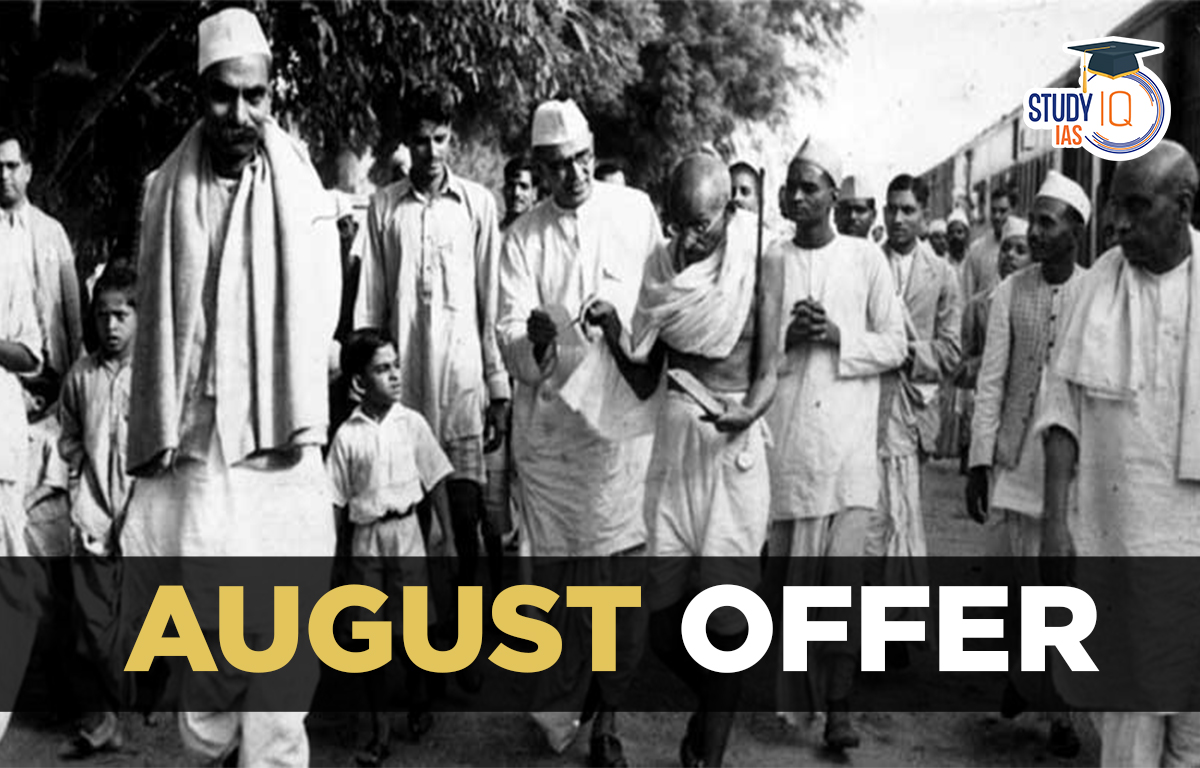
 Phone-tapping in India, Legal Framework ...
Phone-tapping in India, Legal Framework ...
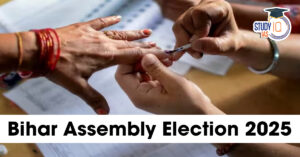 Bihar Assembly Election 2025 Dates, Poli...
Bihar Assembly Election 2025 Dates, Poli...
 Jharkhand High Court Assistants Admit Ca...
Jharkhand High Court Assistants Admit Ca...

